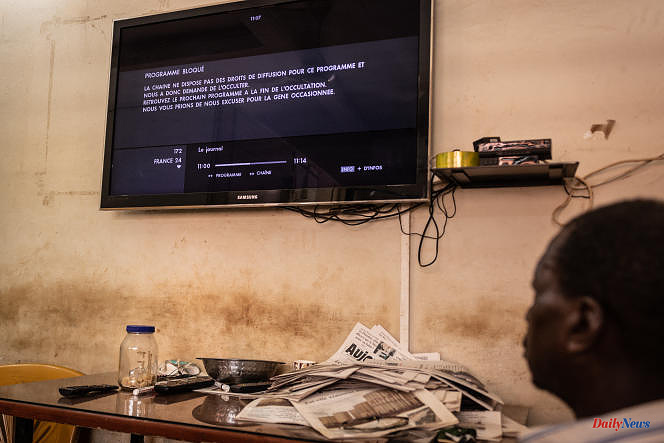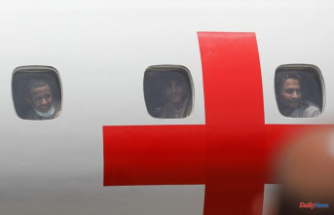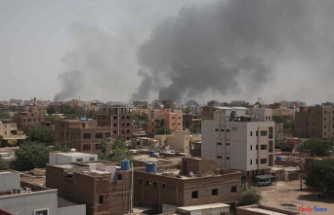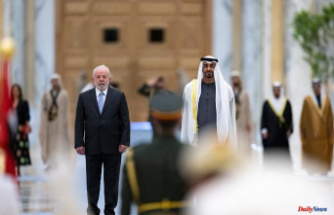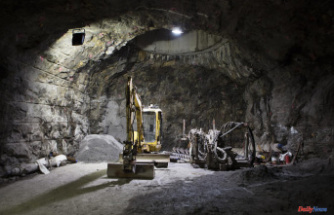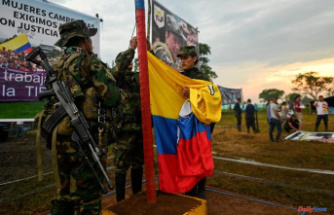"Program blocked. Since Monday, a black screen has replaced the France 24 news bulletins on television sets in Burkina Faso. On March 27, the ruling junta ordered the "sine die" suspension of the broadcasting of French media programs on its territory, three weeks after the interview of the journalist and specialist in jihadist issues Wassim Nasr, with the head of Al -Qaeda in the Islamic Maghreb (AQIM).
On March 6, the channel chose to analyze the answers to seventeen questions, addressed in writing to Abou Obeida Youssef Al-Annabi, the head of AQIM, without broadcasting the audio answers to avoid relaying the group's propaganda.
The Burkinabé authorities have however estimated that by "opening its antennas to the first person in charge of AQIM, France 24 does not only act as a communication agency for these terrorists, worse it offers a space for legitimizing terrorist actions and speeches of hatred conveyed to satisfy the evil aims of this organization on Burkina Faso", according to the press release from government spokesman Jean Emmanuel Ouédraogo.
The management of France 24 is outraged by these "outrageous and defamatory remarks" and disputes "the baseless accusations which call into question the professionalism of the channel", followed by a third of the population each week in the country.
The noose tightens on the press
"The suspension of the broadcast of France 24 is a serious attack on the freedom of the press which violates the right of Burkinabés to be fully informed in a pluralistic framework. Freedom of the press must in no way be the victim of diplomatic tensions", regrets Christophe Deloire, Secretary General of Reporters Without Borders (RSF), as relations between Paris and Ouagadougou continue to deteriorate and the junta , as in neighboring Mali, ended in January the military partnership linking this country plagued by jihadist violence to the former colonial power.
In Burkina Faso, since the military seized power following a coup in September 2022 – the second in eight months – the noose has tightened on the press. At the beginning of December, the transitional government had already suspended the broadcasting of Radio France Internationale (RFI), from the same group, France Médias Monde, accusing it in particular of having relayed "a message of intimidation" attributed to "a terrorist leader".
After the suspension of RFI, the authorities had summoned the representatives of the Burkinabé press organs, as well as all the correspondents of the international press, for a meeting that sounded like a warning against the media which would relay the messages of " the enemy" or information that could "discourage" the population, while the violence has killed more than 10,000 people in seven years in the country.
Faced with a resurgence of terrorist attacks in recent weeks, the leader of the junta, Captain Ibrahim Traoré, was more threatening against critical voices during a trip to Kaya, in the Center-North, the March 23. "All those who think they are hidden, inside or outside, who continue to inform, to communicate for the enemy, they will pay it", warned the head of state , going so far as to mention the recent case of a whistleblower "arrested" and "hired immediately to be VDP", the name given to the army's civilian auxiliaries, after having challenged the authorities on the security situation in the region, during a press conference a few days earlier.
Fear is instilled in journalists
If the forced enlistment of this man, decked out in military fatigues according to the images circulating on social networks, remains to be confirmed, the message is clear for opinion leaders. The junta, which advocates all security in an attempt to "reconquer" the vast swaths of territory occupied by armed groups, hardens its tone and relies on its supporters to occupy the media field.
On social networks, several Burkinabe journalists have been the subject of insults and threats through messages and videos relayed by certain pro-junta activists. Ahmed Newton Barry, journalist and former president of the Independent National Electoral Commission (CENI), targeted by several calls for murder, denounces "a dual strategy to muzzle any dissenting voice and impose silence in the war against terrorism. The government is going after the international media and leaving it to its supporters to hunt down and silence critics inside.”
In Burkina Faso, fear is instilled in journalists and human rights defenders. The country, long considered one of the African continent's success stories in terms of press freedom, fell four places in the Reporters Without Borders (RSF) ranking in 2022, placing 41st out of 180. was RFI, today it's France 24, tomorrow who will be next on the list? worries Sadibou Marong, head of the RSF regional office for West Africa, located in Dakar (Senegal).
Pressure, summoning journalists, blocking official communication... Self-censorship is increasing and the jihadist threat on the ground is hampering access to information. “Getting around has become risky and our sources there are afraid to speak on the phone. For the attacks, we have to content ourselves with relaying the official reports, the authorities call us as soon as we move away from their press release", regrets Lamine Traoré, journalist at Radio Oméga, one of the most listened to stations in the world. country, whose management has just lodged a complaint after messages calling for the burning of its premises and the homes of its employees.
Suspicions of embezzlement, abuses attributed to the security forces... "Taboo" subjects are multiplying. In an investigation published on March 27, the French daily Liberation was able to reconstruct the circumstances in which a video was filmed showing children executed in a military barracks in the north of the country. The government immediately condemned "manipulations (...) for political purposes" and the desire to "discredit" the army.

